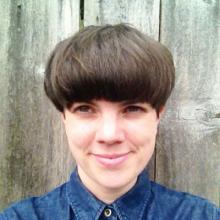Nicole Wilson
Why did you decide to pursue a graduate degree?
I decided to pursue a PhD because it provides the opportunity to do a research project that I would not have been able to complete through another avenue.
Why did you decide to study at UBC?
I chose to study at UBC because it is a world-class institution and my home department (IRES) has a great reputation. I was living in Ithaca, New York finishing my MS in Natural Resources at Cornell at the time that I decided to apply to PhD programs. I wanted to move back to Canada to do this. UBC was among my top schools of choice in Canada.
What is it specifically, that your program offers, that attracted you?
I was interested in doing a PhD in the Institute for Resources, Environment and Sustainability (IRES) because of the interdisciplinary and problem focused nature of the program, which encourages students to develop applied research projects to address the environmental challenges facing communities. Also, compatibility of my own and my advisor’s research interests made the program an even better fit.
What was the best surprise about UBC or life in Vancouver?
The best surprise about living in Vancouver has been how much I have come to like the rain. Being from Calgary, which has a dryer climate, I thought I would never get used to it, but now I quite enjoy it.
What aspect of your graduate program do you enjoy the most or are looking forward to with the greatest curiosity?
I am really looking forward to doing fieldwork in the summer and fall of 2015. I have been working in the Yukon River Basin, in Alaska and Yukon for the last five years and it is always a pleasure to return to the North.
What do you see as your biggest challenge(s) in your future career?
I think that the academic job market is a huge challenge facing PhD students today. There are very few tenure track jobs and an increasing number of qualified people to fill them.
How do you feel your program is preparing you for those challenges?
I think that one of the strengths of IRES is that the faculty consistently reminds students that there are other career options outside of academia (for example, in government or the private sectors, including consulting opportunities). Many students actually enter this program with the goal of pursuing a non-academic career path. I think that IRES does a good job of preparing students to work in both academia and these other contexts.
What aspects of your life or career before now have best prepared you for your UBC graduate program?
Gaining several years of professional experience prior to entering graduate school has been critical to my success. Many students feel pressure to go directly from undergraduate studies to graduate school, but I think that working for a couple of years gives you a more rounded perspective that is particularly important for those students interested in doing applied research.
What do you like to do for fun or relaxation?
I spend time hiking and camping with my family and friends. I also volunteer at a number of different community organizations.
What advice do you have for new graduate students?
Developing a positive and collaborative relationship with your advisor is one of the key factors that contribute to success in graduate school. Communicate with your advisor as often as possible. Learn about their advisory style, how they think about research and what their expectations are for their students in order to build this relationship.

